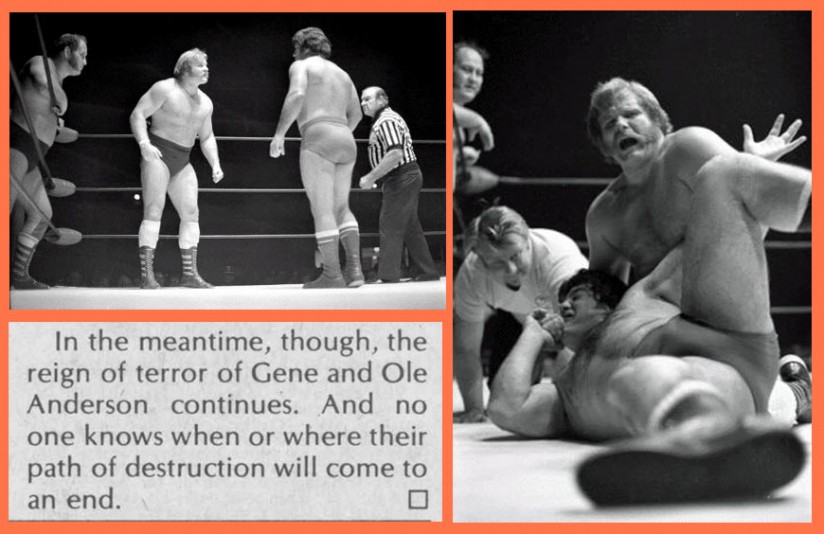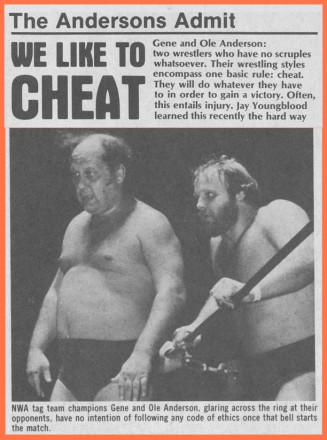 The classic wrestling magazines knew how to enrage, titillate, and excite the readers while always supporting the concept that masculinity is empowering. Here is an article from an Old School magazine where the original Anderson brothers, Gene and Ole, brag about the fact that they “like to cheat.”
The classic wrestling magazines knew how to enrage, titillate, and excite the readers while always supporting the concept that masculinity is empowering. Here is an article from an Old School magazine where the original Anderson brothers, Gene and Ole, brag about the fact that they “like to cheat.”
To say that they “like” cheating implies that they derive pleasure from it. They’re admitting that they don’t cheat in order to win — they cheat because they get a charge out of it. Here’s the text from the original article along with photos of these hyper-masculine brothers brutalizing their less-manly competition…
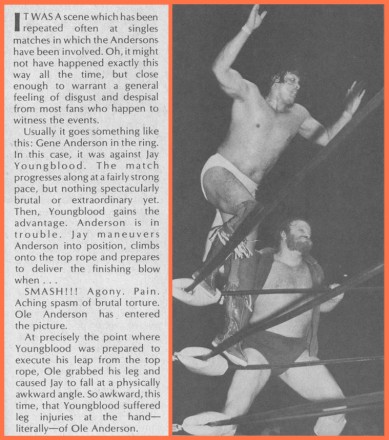 For this article, Jay Youngblood and his partner Ricky Steamboat are presented as the opposite of the cheating Andersons: the rule-followers, the victimized chumps, the beaten bitches.
For this article, Jay Youngblood and his partner Ricky Steamboat are presented as the opposite of the cheating Andersons: the rule-followers, the victimized chumps, the beaten bitches.
Clad in heroic white trunks, the noble and handsome Native American just wants to wrestle fair and square out of respect for the sport, yet the Anderson Brothers flaunt their manliness through cheating which causes the sissy an injury.
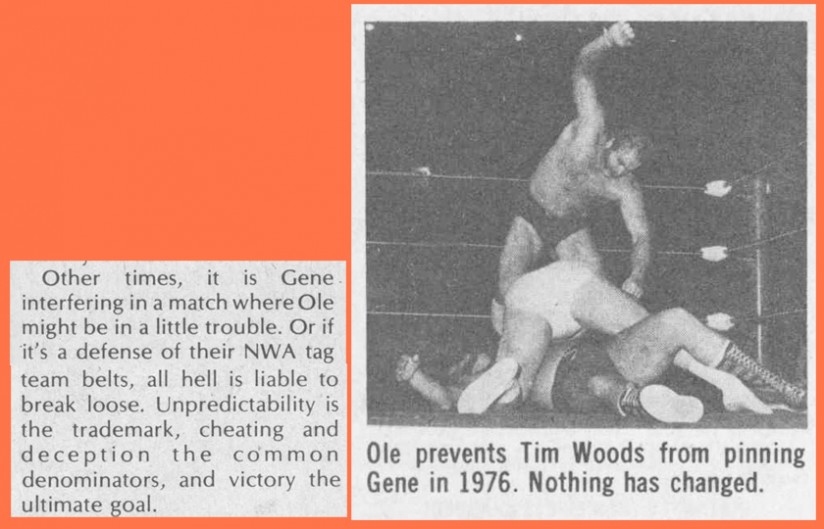
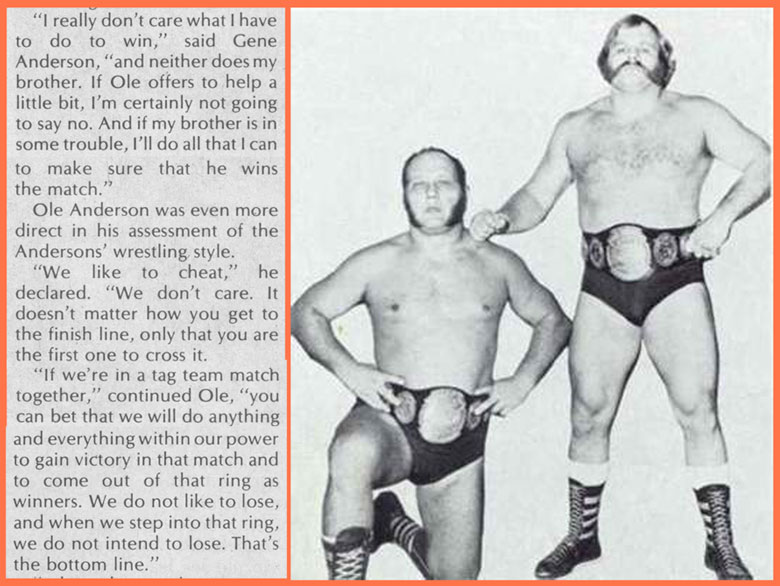
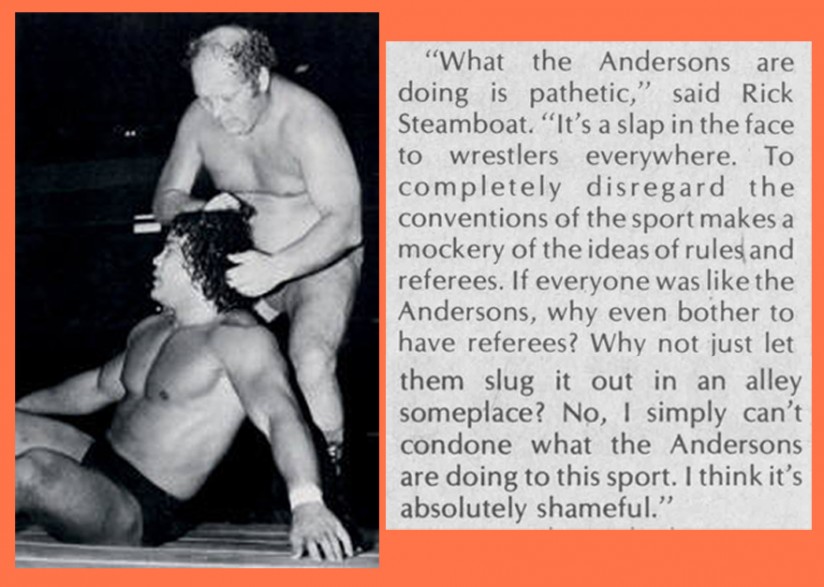
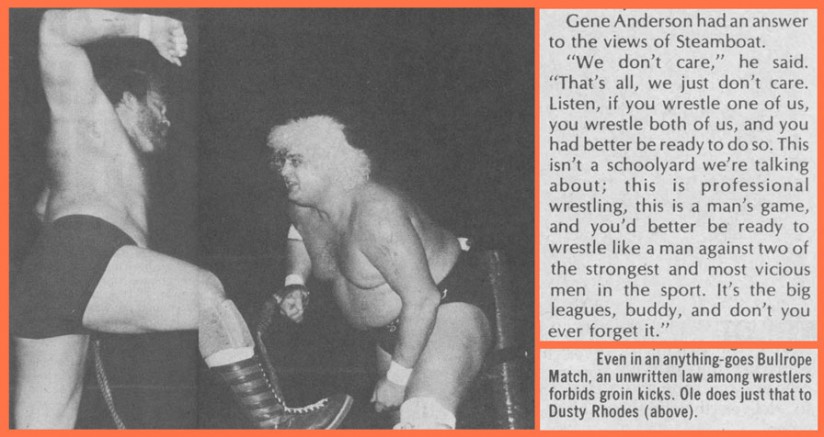 When the young Baby-Faces, Jay Youngblood and Ricky Steamboat, complain about the Andersons’ cruel tactics, the dominant team responds by presenting the traditional definition of masculinity as violent and brutal, and therefore justified. “This is a man’s game, and you’d better be ready to wrestle like a man…“. Apparently wrestling “like a man” means cheating and using vicious, brutal tactics.
When the young Baby-Faces, Jay Youngblood and Ricky Steamboat, complain about the Andersons’ cruel tactics, the dominant team responds by presenting the traditional definition of masculinity as violent and brutal, and therefore justified. “This is a man’s game, and you’d better be ready to wrestle like a man…“. Apparently wrestling “like a man” means cheating and using vicious, brutal tactics.
Traditionally, manhood is established either by taking abuse without flinching or by displaying macho bravado by threatening to inflict abuse or actually doing it. The ideal man under this classic definition is physically large, prone to violence, and willing to inflict pain to establish and maintain his power (i.e., the Andersons).
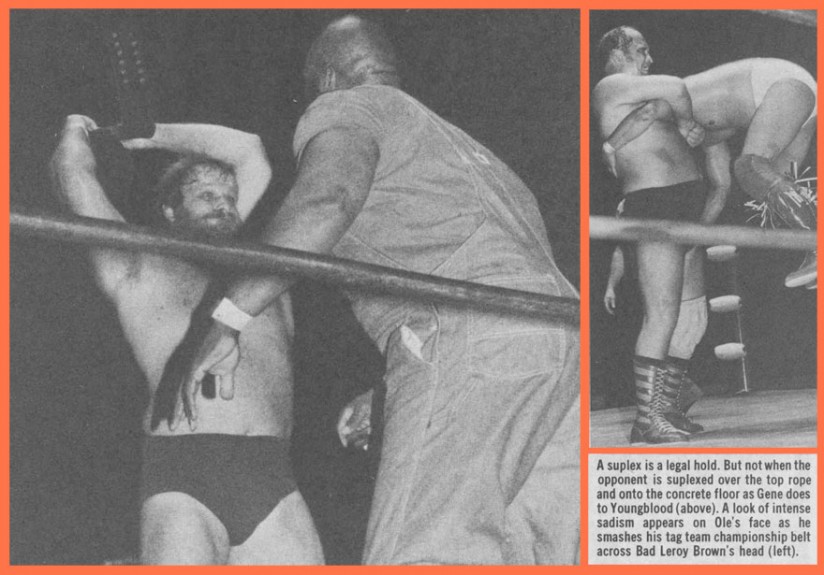
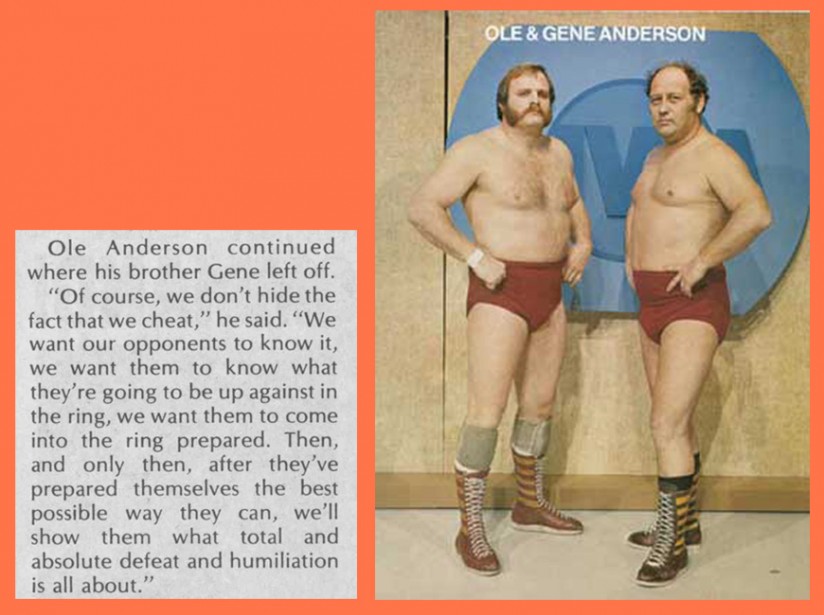 The physical appearance of the Andersons is meant to be hyper-masculine and full of violent potential with their thick chests, full-sized bulging trunks, facial hair, and threatening expressions. The magazine readers are led to understand that the more masculine team is entitled to a position of dominance in the wrestling federation, in society in general, because of their masculinity. This concept is conveyed when the Andersons explain what will happen to their opponents: “We’ll show them what total and absolute defeat and humiliation is all about.” It is apparently humiliating to lose a match.
The physical appearance of the Andersons is meant to be hyper-masculine and full of violent potential with their thick chests, full-sized bulging trunks, facial hair, and threatening expressions. The magazine readers are led to understand that the more masculine team is entitled to a position of dominance in the wrestling federation, in society in general, because of their masculinity. This concept is conveyed when the Andersons explain what will happen to their opponents: “We’ll show them what total and absolute defeat and humiliation is all about.” It is apparently humiliating to lose a match.
The message sent to the male readers by this article (by pro wrestling in general) is that Might makes Right; that violence begets power and control; that strength and brutality — the traditionally masculine traits — are good and empowering; that defeat is humiliating. The male readers respond by reveling in their manhood and purchasing more Rasslin’ magazines with the same message to reaffirm the partriachal, male dominated world view.
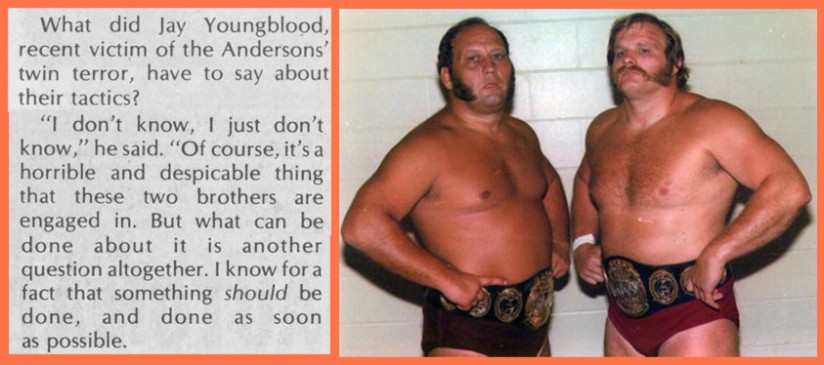
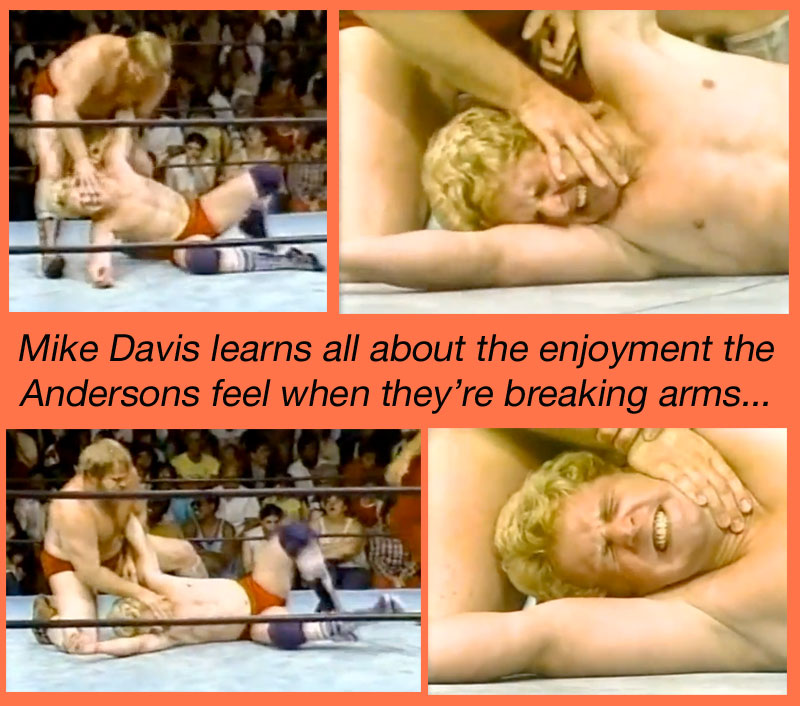
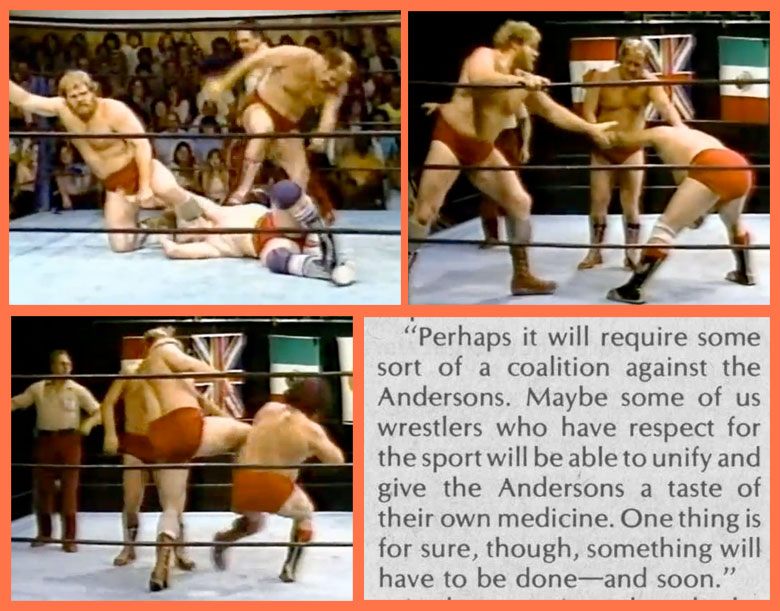 This article presents Ricky Steamboat and Jay Youngblood as whining pussies relative to the Real Men. Anyone who feels violence and brutality is wrong is presented at worst as an impotent sissy, and at best a naive chump who will never win. Youngblood bitches that “something will have to be done,” but he has no action plan, no support, no results. The Andersons’ brutality continues unabated. Therefore Youngblood is seen as impotent and ineffective compared to the masculine, results-driven Andersons — the Real Men.
This article presents Ricky Steamboat and Jay Youngblood as whining pussies relative to the Real Men. Anyone who feels violence and brutality is wrong is presented at worst as an impotent sissy, and at best a naive chump who will never win. Youngblood bitches that “something will have to be done,” but he has no action plan, no support, no results. The Andersons’ brutality continues unabated. Therefore Youngblood is seen as impotent and ineffective compared to the masculine, results-driven Andersons — the Real Men.

